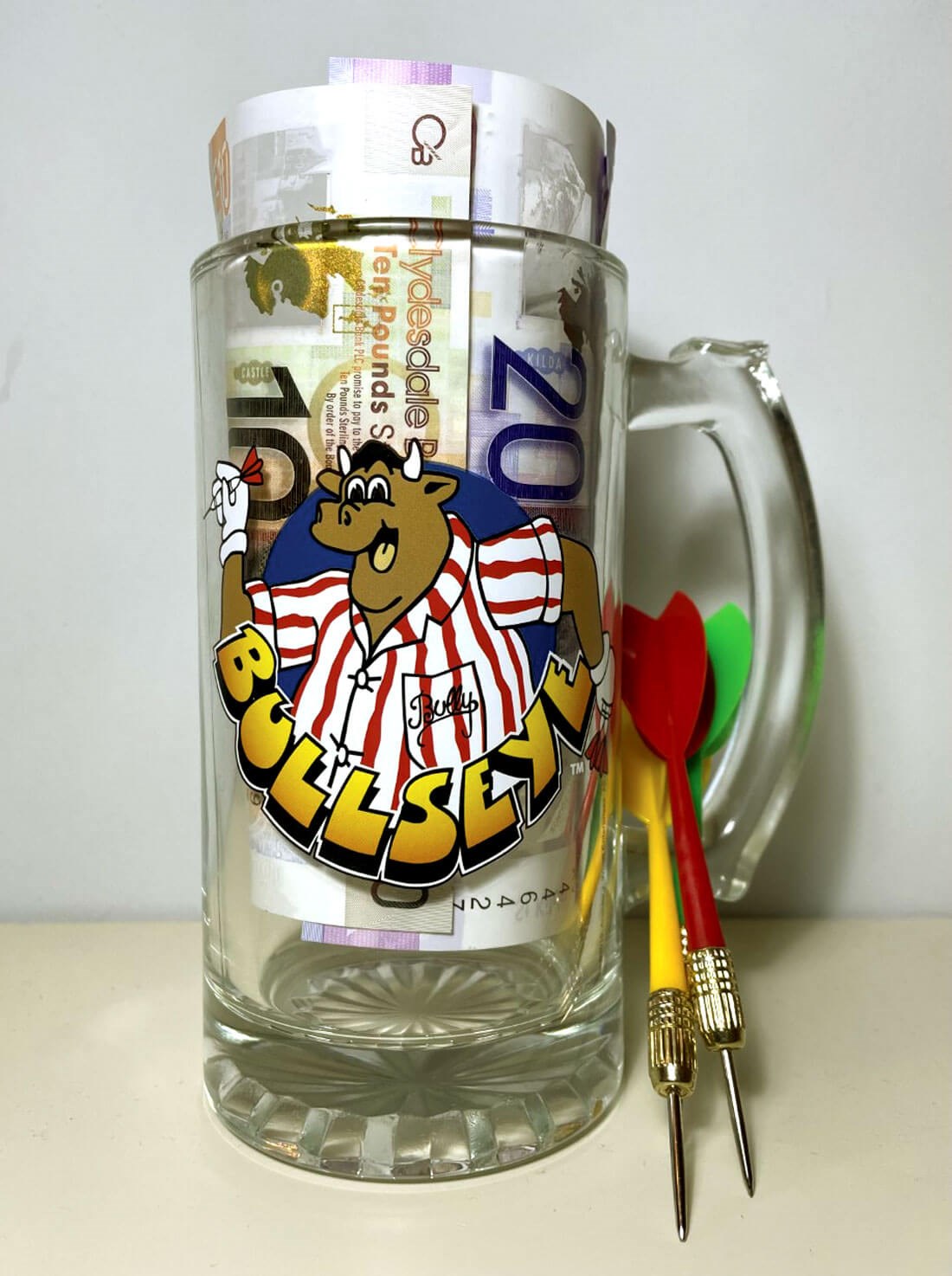As a child of the 70s and 80s, there were limited television viewing opportunities. For the duration of the 70s there were only three channels, only moving to four with the launch of Channel 4 in 1982. Not only that, but many parents of that era considered time spent watching television to be a frivolous pursuit and actively discouraged it.
Despite this, and often hearing my mum in the kitchen calling out “What rubbish are you watching?”, during this period I still managed to fritter away large amounts of my life consuming television, from which I have derived many of my pop culture references. Much of this visual diet comprised what could be considered the epitome of time wasting: the game show.
Throughout the working day I am reminded of the game shows of my youth, with various events that take place conjuring up memories of particular programmes. In this article I will discuss these game shows and the thoughts they evoke.
Family Fortunes
First screened in 1980, this show was based on the US version Family Feud, but the name was changed by the first host, game show stalwart Bob Monkhouse, as he felt the word “feud” was too aggressive. The game involves two families providing answers to commonplace questions such as “Name an animal found in a zoo” that are surveyed to 100 members of the British public before the show. The top answers are displayed on a large board and if someone guesses a more obscure, lower-ranking answer, they occasionally win a “mystery prize”. There now follows the top answers from a series of questions from my day, including a mystery prize answer.
What are the most common replies for Pete on calling out a patient’s name in the outpatient waiting area?
1. “Ooo, I’m stiff sitting.”
2. “Old age doesn’t come itself.”
3. “Do you do hips as well, son?”
7. *Mystery prize answer*: “I’ve already done all this.”
What are the most common replies for Pete on asking if a patient has any allergies in the intravitreal injection treatment room?
1. “The wife / husband.”
2. “Doctors.”
3. “Needles.”
7. *Mystery prize answer*: “The tax man.”
What are the things most likely to annoy Pete in the outpatient clinic?
1. The computer continually logging him out.
2. Never having any of the required forms (blind registration, etc.) on the desk.
3. The heating not working and the clinic room being Baltic [1].
7. *Mystery prize answer*: A guide dog eating the rest of his packet of Fruit Pastilles from his open bag.
Which are the vehicles most likely to tailgate Pete on the journey to work [2]?
1. Range Rover.
2. BMW.
3. The ubiquitous white van.
7. *Mystery prize answer*: Fiat 500 (?!?).
Bullseye
A beloved game show of many an 80s child and hosted initially by the legendary Jim Bowen, it features pairs of contestants comprising an amateur darts player and a quizzer (non-darts player), competing in darts games and quizzes to win prizes [3]. The highest scoring pair from each episode make it through to “Bully’s Prize Board”, where darts are thrown at a dartboard comprising alternating red and black sectors, a dart in the red winning a prize and a dart in the black, nothing.
Unfortunately, there is no analogy that I can draw from this part of the programme, as nowadays working in the NHS there are no “prizes” or perks. In the past though, there were, and in those more favourable olden times prizes could consist of “matron waking you up with a cup of tea and the case notes when asking you to review a sick patient at night”, or “the theatre sister asking you if you want your soldiers buttered and how you would like your boiled egg on arriving at the operating theatre in the morning” [4]. Both of these prizes have been fact-checked for their veracity, and I would definitely support a campaign for their reinstatement into the NHS “game”.

You’re not going home from the clinic empty handed.
You have your Bullseye tankard and your bus fare home.
In the final round, “Bully’s Star Prize Gamble”, the final duo is invited to gamble everything they have won so far for the chance of winning a mystery star prize. All they have to do to win is to score 101 or more on a standard darts board with six darts: three darts for the quizzer and three for the amateur darts player, with the quizzer (who is usually not very good at darts) going first. For a work analogy, I have chosen cataract surgery with a consultant (darts player) supervising a trainee (quizzer), the scores on the board being announced by Tony Green, the professional darts referee, and corresponding to the events taking place in the operation.
Trainee (quizzer):
“Three!” – Paracentesis too large (bad)
“Double one!” – Capsulorrhexis torn out (even worse)
“You’ve missed the board!” – Posterior capsule ruptured (very, very bad).
Consultant (darts player):
“20!” – Anterior chamber maintainer inserted (good)
“Double 20!” – Anterior vitrectomy performed (even better)
“Bullseye!” – Intraocular lens successfully placed in the sulcus (excellent, victory saved from the jaws of defeat).
And yes, with a score of 115, Bully’s star prize is won, which is the patient seeing 6/6 the following day with no intraocular pressure issues!
Crackerjack
“It’s Friday... It’s five to five... it’s Crackerjack!” was the rallying cry on the BBC from 1955 to 1984 early on a Friday evening, when children, including me, would gather in front of the television to watch the high-tempo kids’ gameshow Crackerjack. The frantic pace of each show interspersed pop acts such as Slade and Mud, with comedy acts and games. The signature game was “Double or Drop”, where kids had to answer questions and were given an increasing pile of prizes to hold on to for each correct answer, and a cabbage for a wrong answer or for dropping any items.
In the main standalone hospital in which I work, there are no electronic paper records. Therefore, at the end of a long outpatient clinic, I wearily struggle back to my office, negotiating several flights of stairs and locked doors, in a similar fashion to the contestants in Crackerjack, with my arms piled high with voluminous patient case notes, fundoscopy lenses and a Dictaphone perched on the top. Dropping something along the way occurs with alarming regularity followed by an expletive. And I am not even rewarded with a cabbage or a much-coveted Crackerjack pencil for my efforts. No, my booby prize is having to stay after hours in my office to finish off the dictation to GPs and opticians that I didn’t have time to do during the clinic. Completely not “Fandabidozi!”, the uplifting catchphrase of one of the show’s comedy regulars, Wee Jimmy Krankie.
Mr and Mrs
Another long-running and memorable programme was the stalwart Mr and Mrs. Here, couples would try and match their spouse’s answers to questions about their love and domestic life, with one person from the pair predicting how their partner, isolated behind a window and wearing headphones, would respond. In the outpatient clinic, elderly couples will often come in together, which is very useful because if the patient is hard of hearing, in a Mr and Mrs fashion, their partner can usually answer all the relevant questions for them. However, as indeed it was with the gameshow, the women are usually much better at providing the required information about their spouse than the men. I do believe that if my wife and I were to enter this quiz we would win hands down as we have a form of communication bordering on telepathy. When the final credits for a movie are rolling late in the evening and I give my wife a knowing look across the sofa she will say to me: “I know what you’re thinking, and the answer is no.” It’s uncanny!
3-2-1
This show first aired in 1978, was hosted by the comedian and entertainer Ted Rogers, and featured the mascot and booby prize Dusty Bin, a robotic cartoon bin dressed like a clown. The game involved several couples trying to solve clues and avoid elimination in order to win a star prize.
In the final part of the show one couple would be left in the game and would have to choose between two notoriously difficult cryptic riddles, one of which would correspond to the star prize and the other to the booby prize Dusty Bin – a brand-new dustbin. So, dear readers, I have prepared for you a cryptic riddle. Does it refer to Dusty Bin or does it lead to the star prize?
“My name is three letters and can leave you fulfilled, but at the end of the day, you may feel empty again.”
Well, the riddle is a trick because it can refer to both Dusty Bin and the star prize: a career in the NHS! And that was the underlying suspicion in the show 3-2-1, which is that the clues could be interpreted in different ways, and in doing so allow the producers to control which prize the contestants won.
Many of the quiz show catchphrases are burned into our consciousness, and to round off this article, I feel the need to leave you with some positivity. Going back to Bullseye, at the start of each episode Jim Bowen would ask the contestants some questions about themselves like “What do you do for a living?”, and whatever their reply, even if it was “I’m unemployed, Jim”, he would answer with the catchphrase “Super, smashing, great”. So, until the next instalment, have a super, smashing, great time!
References
1. For around a third of the year this is the case. It can get so cold in the clinic room that I have considered using greengrocers fingerless gloves to stave off the frostbite in my hands, but I fear that they would not comply with the NHS “bare below the elbows” infection control policy.
2. This question may seem a bit rich coming from me as an Audi driver, given that we are also notorious for tailgating. However, I do not conform to the stereotype, as I am in no particular hurry to get to work in the mornings. You also might think that I would be in a hurry to get home, but after a day at work there is no fight left inside me, so I generally contend with the journey in a fatalistic, zombie-like stupor.
3. The quiz questions in this programme were never particularly difficult. In one episode, Jim Bowen notoriously asked the contestants: “In which state was President Kennedy assassinated in Texas?”
4 If any nurses from my unit are reading this and would like to reinstate this prize, then buttered soldiers and a 3 minute runny yolk for me, please.
COMMENTS ARE WELCOME








